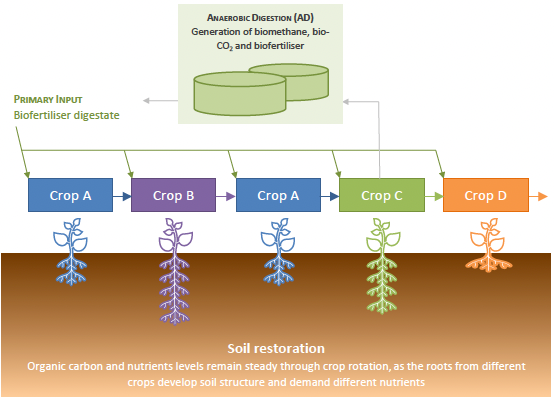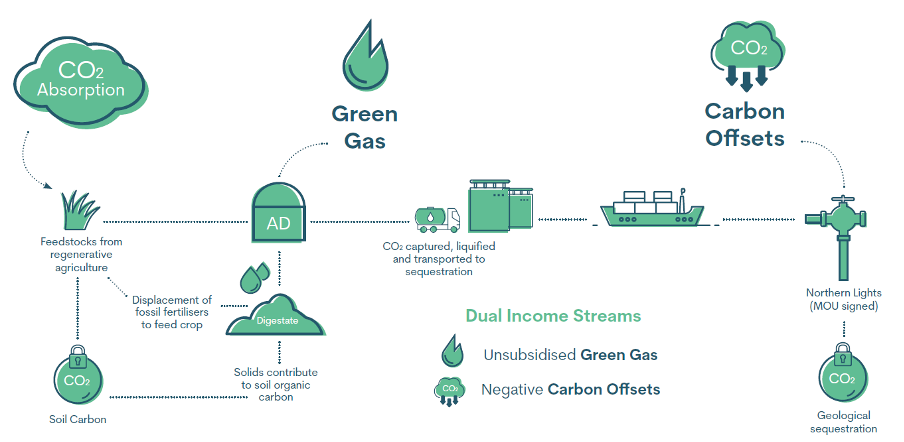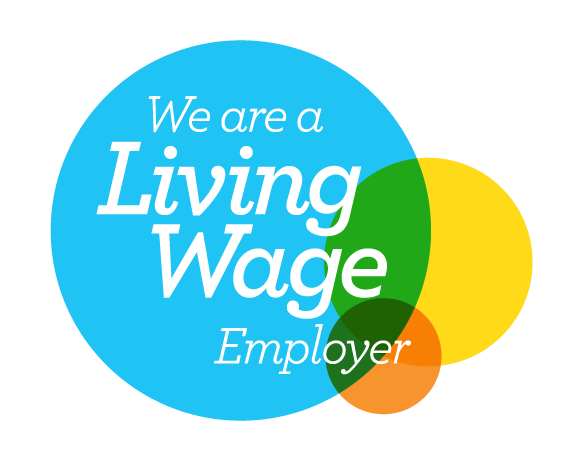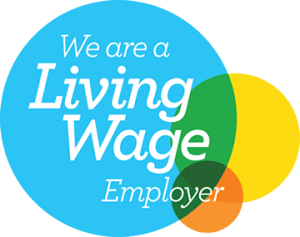World Soil Day
IS SOIL HEALTH IMPORTANT?
HEALTHY SOIL IS ESSENTIAL FOR BOTH CLIMATE CHANGE MITIGATION AND ADAPTATION
Article by Linnea Hopkins, Marketing Manager at Optimised, sharing expertise on soil health and climate change connection, together with our partner Future Biogas.
WHY DOES WORLD SOIL DAY MATTER?
OPPORTUNITIES TO ADDRESS GLOBAL CHALLENGES
Environmental degradation, climate change, food security and human health can be addressed by caring for our soil. As a community, we have a responsibility to protect the very foundation for life on this planet. By celebrating soil day and promoting awareness of the dangers of our current soil depletion trajectory, we can turn this around. Natural and man-made technologies exist, that need to be better practiced across the planet.
HOW IS OUR SOIL DOING?
DEPLETING RAPIDLY WITH INTENSIVE FARMING
In the UK, 69% of the country’s land area is dedicated to agriculture. In many of these areas soils have significantly degraded as the pressure to produce food for a growing population intensifies cultivation and the industry has been pressured into extensive use of artificial fertilisers and short crop rotations. Linked to the demands for high yields, artificial fertilisers emit carbon emissions during production and reduce biodiversity on farmland.
Mono-crop agriculture depletes nutrients in the soil, and continues, despite scientific evidence to support more sustainable farming. Below is an illustration (provided by Future Biogas) of the needed transition to low-carbon, regenerative farming practices to protect the long-term productivity of UK agriculture.

Conventional Farming
Unsustainable. Linear.
- Government subsidies incentivise production above all else, resulting in agricultural intensification
- Short crop rotations lack variety, reducing biodiversity and limiting soil development
- Extensive use of artificial fertilisers fails to replenish soil with organic carbon
- Soil is left unprotected between crops, leaving it vulnerable to erosion
Transition to sustainable agriculture

REGENERATIVE Farming
sustainable. CIRCULAR.
- Crop rotation greatly improves agricultural resilience and biodiversity
- Crop yields are improved
- Carbon is sequestered in soil, benefiting soil health and water retention
- The integration of crops for AD supports the diversification of agricultural income and provides an organic-rich biofertiliser for other crops
- Soil is protected year-round from erosion
HOW CAN ANAEROBIC DIGESTION HELP?
RENEWABLE ENERGY OUTPUT AND DIGESTATE AS FERTILISER
Anaerobic digestion (AD) is a process where organic matter is broken down by bacteria in an oxygen-free environment, producing biogas and digestate (the matter left over post AD).
The biogas is mostly methane, the primary component of natural gas, and once upgraded to biomethane, can replace fossil fuels for transport and heating. The digestate is rich in nutrients and is a valuable fertiliser for soil restoration, as shown in the diagram above. Managed the correct way, crop-fed anaerobic digestion can provide an environmentally friendly way to reduce greenhouse gas emissions, prevent pollution, and conserve fossil fuels through renewable energy. It supports a circular economy by recycling nutrients into natural fertilisers.

WHAT IS FUTURE BIOGAS DOING?
LEADING THE ANAEROBIC DIGESTION SECTOR AND CAPTURING CARBON
Future Biogas is one of the largest producers of biomethane in the UK, currently working with over 400 farmers to produce renewable gas to heat over 40,000 homes. It is pioneering the UK’s first subsidy-free biomethane (green gas) project to produce green gas from the anaerobic digestion of locally grown energy crops. The project seeks to decarbonise food production and make farms more resilient to the effects of climate change by combining profitable break crops with regenerative farming approaches and optimal use of digestate as part of a high-quality, soil positive rotation.
Carbon dioxide (CO₂) removed from the atmosphere by the energy crops and produced as a by-product of the green gas process will be captured. This can then be liquefied and sent for permanent geological sequestration under the North Sea. That way, while reducing the carbon footprint of the farm and delivering zero carbon green gas, the plants will also deliver a net reduction of CO₂.
This opportunity to diversify income, decarbonise farm inputs and gradually rebuild soil health will also enhance the natural ecosystem services of the surrounding natural environment. Key to this is the return of organic matter, key plant nutrients and an active soil biology back to the farm through applications of digestate, displacing fertilisers made with fossil fuels. Project Carbon Harvest focusses on supporting farmers in the transition to more regenerative land practices, encouraging the custodianship of UK soils whilst boosting biodiversity and wildlife on farm.

WHY IS OPTIMISED INVOLVED?
RENEWABLE STRATEGY PLACES GREEN GAS CENTRAL IN PROCUREMENT OFFERING
Optimised offers solutions that support businesses in the transition to a net zero economy. As everyone needs energy, the procurement and renewable strategy teams ensure that its clients access glean energy and technology to decarbonise, connecting with advisory and building optimisation to reduce consumption and carbon throughout their operations. Advisory and risk management services help renewable energy generators sell green gas certificates and enable profitability.
HOW CAN EACH BUSINESS AND HOME CONTRIBUTE?
PURCHASE GREEN GAS AND COLLECT FOOD WASTE FOR GOOD
A shared responsibility to reduce climate change pace and impact, whilst adapting to a warming world, means that we need to look at how we use, reuse and waste biproducts of our personal and corporate operations. The first step is to optimise buildings and operations to use less energy. To power and heat, we choose renewable sources of energy, such as green gas. Unavoidable waste, in our homes and businesses, can become valuable resources in a circular economy.
World Soil Day helps us remember how vital the ground is. Let’s celebrate it by looking after it, today and every day.
BOOK YOUR 30-MINUTE ENERGY MANAGEMENT CONSULTATION
Fill in your details below to arrange a complimentary consultation with one of our experts. They will give you bespoke advice to help your business achieve all its energy needs, reducing cost, consumption and carbon.










